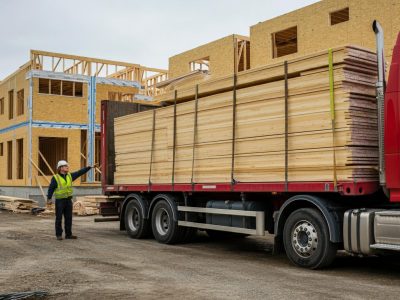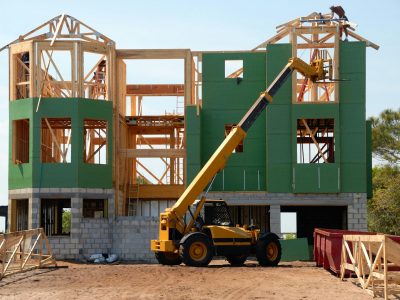
Purchasing a new home is one of the most significant financial commitments you’ll ever make in your lifetime. The challenge becomes fierce for a first-timer. From following a million steps to looking after tasks and requirements, the list of preparations is endless.
Before moving on to what you should consider for demystifying the homebuying process, there are a few things you must know about. The first step to follow before you go and make such a huge purchase is to pay off all your debts and get into a sound financial position. Make sure that you do your research about the loan options so that you don’t end up in a financial crunch.
That being said, here’s a rundown of what a first-time homebuyer should consider before closing the deal.
- The contract is ALWAYS negotiable.
Before you go house hunting, you must know that there’s a lot of paperwork to sign, known as contracts. You might be told beforehand that these “standard” home buying contracts are non-negotiable. That isn’t all true. Industrial experts confirm that contracts are meant to be negotiated. You can take your time to review your contracts and add, delete or modify some clauses that don’t make sense to you.
That’s where taking advice from savvy realtors can help. From negotiating a price to monitoring home inspections, they can help you protect your interests and guide you throughout the buying process.
- Use foresightedness to narrow down your choices.
As mentioned earlier, purchasing a home will be one of the most crucial financial decisions of your life. Thus, before you decide to buy your first home, it is important to take your long-term plans into account. Think about things like- Do you plan on staying in the current city for a longer period of time? Or Do you want to get married and start a family in the near future?
Depending upon your future goals, you can redefine the characteristics of your first home. For instance, if you plan to start a family shortly, you might want to own a big family-friendly home. Keep looking for options until you find the one that can prove to be a worthy purchase in the future.
- Request a home inspection
Many homebuyers overlook this crucial step after finding their dream house, especially if it is newly constructed. But it’s not a smart move, and you might end up in a faulty home. Once you’ve found the ideal house, you must get a thorough inspection to unveil any hidden defects.
Look at it this way, suppose your newly constructed home gets diagnosed with drainage or plumbing problems. Dealing with such issues before moving in is much better than getting any unpleasant surprises later. Snagging professionals will scan your would-be house, look for the problems and save you from making an expensive mistake.
They will also look for mold, termites, foundation/roofing problems and prepare a report card for your home. Such a comprehensive snagging survey is all about inspecting each and every part of a newly constructed property, internally and externally. Also, it will save you from a number of repairs later on. Additionally, you might also be able to renegotiate the purchasing price if the house needs some major repairs. Thus, it wouldn’t be wrong to say that with the help of a house inspection, you can pull off a fair deal without getting roped into paying extra for a faulty home.
- Consider your finances
It is needless to say that your financial health plays a crucial role in choosing your dream home. And choosing the one that you can’t afford can easily land you in a financial crunch. You definitely wouldn’t want to be in that situation. Make sure that you dial down your expectations so that you don’t end up in a fancy big home which could leave you buried under a huge debt. Also, let’s not forget the golden rule of the real estate industry- choose the property that aligns with your finances and not the other way around.
For instance, if you are opting for a loan to pay for your home, it is important that you do all the homework beforehand so that your financial picture is clear in front of you. Also, make sure that you run a credit check so that you already know what interest and mortgage rate you can afford and qualify for.
Once you get well-versed with your financial situation, try to stick with your budget. Otherwise, you might get roped in, paying huge interest and mortgage payments your income couldn’t pay off.
- Avoid fixating on the purchase price.
You need to understand that it’s not just the purchase price of the house to consider before purchasing a home. You need to shift your focus to other costs such as homeowner’s insurance, real estate taxes, maintenance/improvement charges, and other fees before associating with your potential new home. These costs might vary from place to place. The point is, these additional costs might add up and leave you with last-minute financial trouble.
Also, if you are planning to remodel the house to meet your needs, you should know that it is much more expensive than it looks. Generally, people focus on the cost of new cabinets, appliances, and countertops they are going to get for their new house. But they often fail to account for other expenses such as labor and materials, which can cause a financial strain to the original budget.
So, try to look beyond the purchase price and draft your home budget, keeping in mind taxes and other added costs. And if you are about to remodel or refurbish your home, it would be a smart move to account for all the possible expenses.
Final Words,
Buying a first home can be exhilarating and scary at the same time. But with a proper plan and approach, you can put your hard-earned money to good use by getting your dream home without any hassle. Now that you know what to consider before signing the deal for your new home incorporate the tips into your house-hunting plans and get the best one for yourself and your family.




















